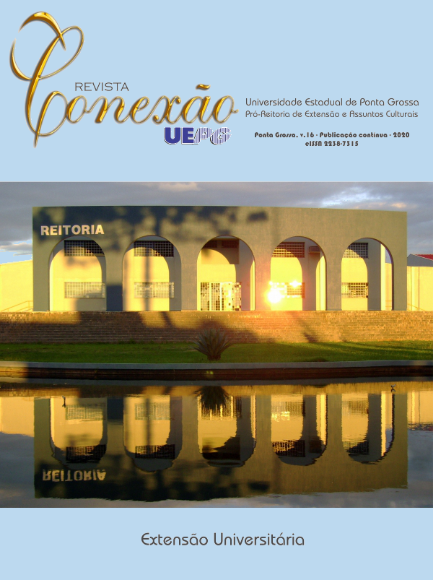“THE LAND SHOUTS”: NARRATIVES ABOUT THE EXPROPRIATION AND THE TRANSPOSITION OF THE VELHO CHICO RIVER
DOI:
https://doi.org/10.5212/Rev.Conexao.v.16.16434.48Abstract
This article aims to understand how the population affected by the transposition of the São Francisco river deals with expropriation on a daily basis. It is a qualitative, interventional, and cartographic research carried out through a hermeneutic phenomenological perspective. The research is a follow up of the continuing education program called TransVERgente. The intervention/investigation generated data from conversation circles. The participants of the study were six low income farmers from Sertânia/PE. The data analysis followed Critelli's Analytic of Sense. The narratives revealed that expropriation causes environmental and lifestyle changes, pointing out that the area studied is marked by the violation of farmers´ fundamental rights, and by conflicts in political relations, in which farmers have a subordinate status. Finally, we reflect on the clinical action in daily living, articulated with political actions as possibilities to support those who struggle every day for their rights and for a place to live.
Downloads
Downloads
Published
Issue
Section
License
a) Authors retain copyright and grant the journal right of first publication with the work simultaneously licensed under a Creative Commons Attribution License that allows others to share the work with an acknowledgement of the work's authorship and initial publication in this journal.
b) By submitting an article to the Revista Conexão UEPG and having it approved, the authors agree to assign, without compensation, the following rights to the Journal: the rights of first publication and the rights to redistribute the article and its metadata to the indexing and reference services that the editors deem appropriate.
c) Readers are free to transfer, print out and use the articles published in the Journal, as long as there is always explicit mention to the author(s) and to the Revista Conexão UEPG and as long as there is no alteration of the original work. Any other use of the texts needs to be approved by the author(s) and by the Journal.






